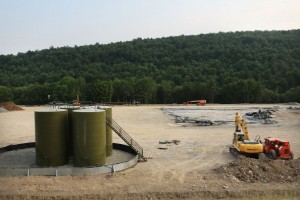Carnegie Mellon University Lobbying for Creation of Shale Gas Research Initiative
-
Marie Cusick
The Pittsburgh Tribune review reports Carnegie Mellon University researchers are in Washington today lobbying the Obama administration for the creation of an independent institute comprised of academics as well as government and industry reps to study the impacts of shale gas development.
Deborah D. Stine is a professor in CMU’s department of engineering and public policy and associate director for policy outreach at the Scott Institute for Energy Innovation. She says more research is needed to fully understand the impacts of gas drilling:
“Our researchers here say there’s not enough money to conduct the research we need to ensure we are protecting the environment and advancing new ways of doing things,” Stine said.
Policymakers faced with complex decisions carrying economic, environmental, regulatory and social implications could benefit from such an effort, she said.
Her team is proposing the creation of an organization similar to the Health Effects Institute in Boston. The institute is an independent panel that administers government and industry money to university researchers working on projects related to the automotive industry.
She said five to seven regional shale research clusters, each funded at $4 million to $7 million a year, would help ensure that policymakers have information to make unbiased decisions based on solid science and engineering.
Elsewhere, university institutes studying the impacts of gas drilling have been criticized for not fully disclosing their ties to the industry. StateImpact Texas reported on a conflict of interest controversy at the University of Texas, which lead to the resignation of the head of its Energy Institute.
In November, the University at Buffalo closed its shale gas institute amid concerns its research was also tainted by potential conflicts of interest.

















